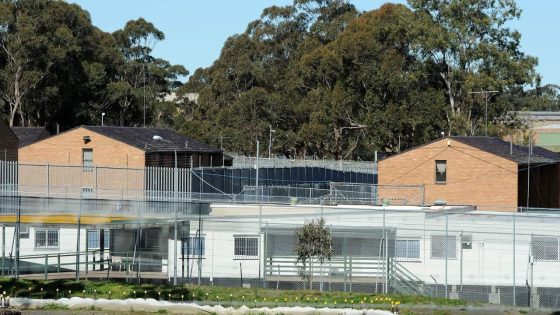Immigration detention issues have plagued the federal government for the past four months, and pressure is mounting ahead of a new High Court challenge.
Now, a further 150 asylum seekers could be released if a new legal challenge — known as ASF17 — is successful.
So what does this mean for Australia, why is the government under pressure, and is the issue receiving a disproportionate amount of attention?
How did we get here?
It all started with the NZYQ case last year.
The High Court decision came after lawyers for a detained Rohingya man from Myanmar, referred to by the pseudonym NZYQ, argued the 20-year-old ruling was wrongly decided.
The court found indefinite immigration detention was illegal, and the ruling covered those who are stateless, those who are owed protection, and those who cannot be removed due to a ‘practical barrier’.
As a result, the government had to release 151 people into the community.
Some of the group had serious criminal convictions, including for murder and rape, while others faced less serious charges.
Following their release, they were subject to strict conditions including ankle monitors and curfews.
Why is the government under scrutiny?
The government has been under increasing scrutiny after it was revealed that 148 of those people had been issued invalid visas after the NZYQ ruling.
The government said the issue was the result of a “technical inconsistency” in migration regulations, dating back to 2013, and the people affected had all been issued new visas.
Ahead of the ASF17 challenge, Opposition immigration spokesperson Dan Tehan has called for Immigration Minister Andrew Giles to be sacked if the challenge is successful.
“That’s what we’re calling for is for Minister Giles for the first time to be transparent, to be very clear to the Australian people,” he told ABC radio on Tuesday.
“What is the scale and size of this mess that he’s got us into?”
Independent Senator Jacqui Lambie said on Monday it was an “absolute disgrace” for the nation to “lose control” of its national security.
What is the ASF17 case?
ASF17 is the pseudonym that’s been given to an Iranian asylum seeker who has refused to cooperate with authorities and who has said if he was deported, he would face persecution, and possibly the death penalty, in Iran.
Iran is the only country Australia is trying to send him to even though he is willing to go to another, his lawyers said in written submissions to the court.
If the ruling is expanded to cover indefinitely detained people who refuse to cooperate with Australian authorities, the Iranian man would be released and more immigrants could be freed.
Luke Beck, professor of constitutional law at Monash University, told SBS News the ASF17 case is slightly different than NZYQ as the man is refusing to cooperate with authorities.
Beck says the case will help decide what ‘no reasonable prospects of deportation’ actually means.
“What this case is about is clarifying the parameters of NZYQ — how far does that go? What does it mean?” he said.
“So this is a follow-up decision to clarify the scope of the main NZYQ decision.”
Giles was quizzed about the issue in Question Time on Monday.
People who did not cooperate with their removal should be forced from Australia as a priority, and during the process should remain in immigration detention, he said.
“We will be vigorously defending this position before the High Court,” Giles said.
If the Commonwealth wins the case, the government will be able to block further releases from immigration detention.
Is the amount of attention justified?
Beck said while immigration detention and the High Court challenges are receiving a significant amount of political attention, this may be disproportionate to the number of people affected by the rulings.
“There’s not that many people who are in this situation where it’s impossible to deport them and then, of that very small number, the number who are potentially dangerous because they have a serious criminal record is even smaller,” he said.
“It’s just politically juicy.”
In a written statement, Giles said the government was ready to respond to the High Court’s decision and evolving boundaries.
“The High Court, through a series of major decisions, has drawn new boundaries around the powers of the executive and the Parliament,” the statement said.
“And there continues to be uncertainty about exactly where those boundaries will ultimately be drawn when it comes to key aspects of migration law.”
Giles said the government was focused on community safety.
“The Government must always act consistently with High Court decisions, and the Government is ready to respond to an evolving legal environment while continuing to ensure that there are layers of community protection in place,” the statement continued.
—- With additional reporting by AAP


